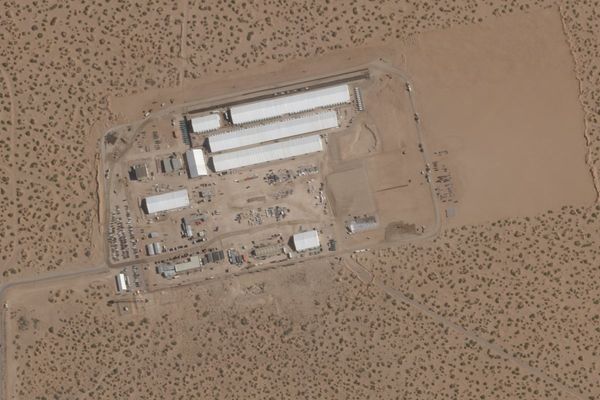It was Remembrance Day of 1999.
Warren Purse was stationed at Darwin's Robertson Barracks as a part of his role as a medic in the Australian Army when he had a conversation with his duty officer that changed his life.
"[The duty officer] said 'Sarge, I've got to tell you,'" Mr Purse recalled.
"The padre's on his way — your wife died in a motorbike crash about an hour ago."
He then had to go home and tell his kids.
"That was probably the hardest thing of my life," he said.
Suddenly a single dad of four, Mr Purse knew he had to make a change, so he decided to dedicate his life to helping others who go through what he did.
So, Mr Purse trained up to become a critical care paramedic with St John Ambulance, now working on the road in Darwin.
"I think this is what I can give back," Mr Purse said.
Northern Territory leading nation in road deaths per capita
In the Northern Territory, you're more likely to be killed on the roads than anywhere else in the country, with the latest Productivity Commission Report on Government Services finding the territory's road death rate was about four times above the national average in 2020-21.
And the problem seems to be getting worse, with 39 lives lost on territory roads already this year — higher than the 35 lost in the whole of 2021.
It's far from a new problem in the territory, which has had the highest rate of road deaths in the country for more than three decades.
The result, according to long-term territory parliamentarian, Kezia Purick, is that people seem to have switched off from the devastation, with no serious momentum for change.
"I think we're desensitised to a certain extent, particularly when you have single fatalities," she said.
She said it was time for the issue to be put back in the political spotlight.
"Given our alarming statistics, we need to have a good serious look at our road safety and our road safety campaigns, which I think seem to have dropped off the radar a little bit."
Past efforts made to reduce deaths
The statistics were worse 15 years ago, when the Northern Territory was still the only place in the country which had open speed limits along large swathes of the Stuart Highway.
Clare Martin was the Chief Minister at the time and in 2006, she introduced a speed limit of 130km per hour, which remains in place to this day.
"You had nine times more chance of dying on our roads than any other parts of the country," she recalled.
"I knew that we would have to knock down some territory icons. And the first one was the open speed limits."
Although today's figures have improved since then, Ms Martin agreed the political will to address the issue had waned.
"As long as we're having this [rate of deaths] on our roads, and if we haven't really looked at those different elements of how to make our roads safer in any major way since 2006, it really could be time to look at it again."
Aboriginal Territorians over-represented in deaths
Ingrid Johnston from the Australasian College of Road Safety said the remoteness of the territory plays a big role in its rate of road trauma.
"In the Northern Territory, you have 70 per cent of your roads being unsealed. And we know that rural and remote areas everywhere in Australia tend to have higher levels of road trauma," she said.
About half of road fatalities were Indigenous people, who make up only about 30 per cent of the territory's population, according to University of New South Wales Public Health Professor, Rebecca Ivers.
"That's really because a high proportion of Aboriginal people tend to live in remote areas, so you have people travelling long distances on not very good quality roads in not particularly good quality cars in many cases," she said.
One of the most notorious of these roads is the Roper Highway, which connects the remote community of Ngukurr to the nearest urban centre of Katherine.
Ngukurr resident Nola Renwick said a car she was in was recently run off the highway — which is only partially sealed and is regularly used for transporting iron ore — by a passing road train.
"Some people, when they travel on the roads, they get into an accident because of the heavy vehicles on the roads," she said.
"And now some people are not here with us, family members."
Where to from here?
Professor Ivers said further lowering the speed limit on the Stuart Highway could help reduce the rate of deaths.
"Certainly 110 would be the maximum that you would want to see along the length of it, and you will see gains on that," she said.
"The safety rating of that road is probably even lower than that."
Professor Ivers said speed and fatigue were "generally the main causes" of single vehicle crashes — which made up 19 of the 39 crashes so far this year.
Ms Johnston said driver behaviour was also a factor, with 30 per cent of fatalities involving someone not wearing a seatbelt.
"So it's something really simple that people can do to make a huge difference to the outcome," she said.
When asked, the NT government's infrastructure department said there was no current plan to lower the speed limit on the Stuart Highway.
However, a spokeswoman said there was "significant investment in roads and infrastructure".
The department is also implementing its Towards Zero Road Safety Action Plan, which includes introducing increased penalties for mobile phone use while driving, bicycle safety road rule changes and campaigns.
Professor Ivers said working with the most impacted communities to come up with solutions was the best way to create real change.
"We need upstream public health and real planning policies that might address them."
Politician Kezia Purick said driver education should start as young as possible.
"I think we need to start with good education program within the school system, then we need to look at the legislation that governs licensing and registration," she said.
"So much of what we do in life starts in our younger years."







